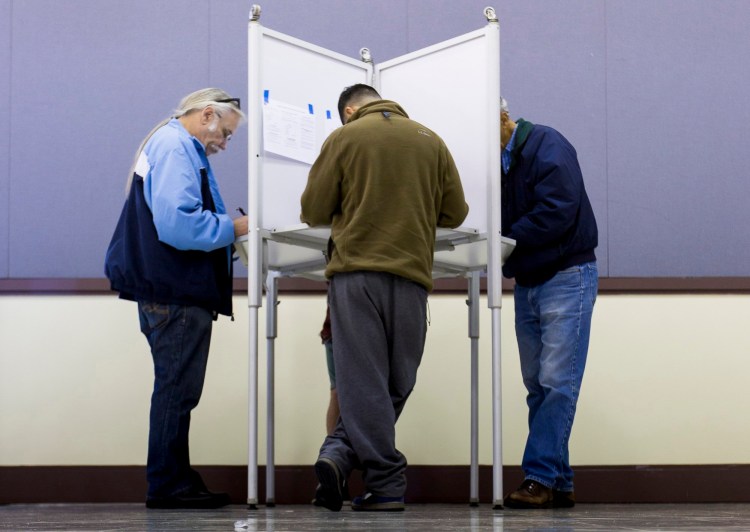We supported the Clean Elections referendum, state Question 1, on Election Day because we believed that public financing is an important part of a functioning democracy. Maine’s history shows that a public financing option has been used by both parties to recruit candidates and contest elections, bringing more voices to the debate over running our state.
The U.S. Supreme Court had handed down a number of rulings that undermined Maine’s successful and popular Clean Election program, and the citizen-initiated law approved this month repaired some of the damage.
But we don’t think the law is perfect, or that it has been able to keep pace with the changes in the way elections are financed. We are glad the measure passed, but we hope this is the first of a series of pro-democracy reforms aimed at reducing the influence of money in politics.
The first is a small change that could be made on the state level, but it would bring a level of transparency that’s missing from Maine elections: It would be the elimination of legislative “leadership PACs.”
Ostensibly used to cover the costs of travel and other expenses needed to run for election to leadership posts like House speaker or Senate president, these PACs create a way for money to get into the system, influencing lawmakers who are supposed to be publicly financed.
Most Mainers have never heard of leadership PACs, and very few are ever asked to contribute to them.
But some people are asked, and they are asked a lot. They are the lawyers, lobbyists and business owners who have an interest in what the government might be up to. These contributions are solicited at cocktail parties and other affairs, and they give the guests a chance to get to know people who make a lot of important decisions.
Maine voters support the Clean Election system because it limits the influence of these self-interested donors, whose interests may not be in line with the majority of constituents in a district. The goal of a public finance scheme like Maine’s is to elect representatives who are accountable only to constituents. Leadership PACs undermine that.
The other change would not be so easy to make. Ever since the Supreme Court ruled that corporations have the same free speech rights as flesh-and-blood citizens, corporate money has been flooding into races for offices from president to state Legislature.
For the last three elections, we have seen out-of-state money transform a handful of competitive legislative races, allowing spending far more than the candidates could raise or spend on their own. Maine is not alone in this, but as a small state with a tradition of low-cost local races, it is an easy target for groups whose interest in the makeup of the Maine Legislature may not be the same as the interest of the people who actually live here.
Damming that flood of dollars would take a constitutional amendment, something that these same monied interests will do everything in their power to prevent. It will be a tough fight that would take years.
We can’t blame the Clean Elections referendum for not solving all of the problems associated with money in politics. But we hope that what Maine passed on Nov. 3 will not be the last election reform we see.
Send questions/comments to the editors.



Comments are no longer available on this story